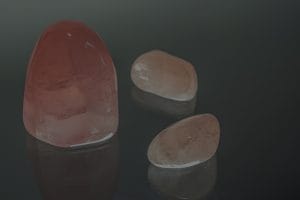**Abstract:**
Unlock the power of your living space with feng shui symbols. Discover their meanings and how they can transform your home into a sanctuary of balance and positivity.
Feng Shui Basics: A Gateway to Harmony
Feng Shui, an ancient Chinese practice, centers around the idea that our environment profoundly impacts our well-being. By understanding feng shui symbols, you can create a harmonious space that nurtures both body and spirit. These symbols represent various elements, energies, and intentions, guiding you to arrange your home in a way that promotes peace, prosperity, and health. Whether you’re a seasoned practitioner or a curious novice, recognizing these symbols can empower you to enhance your living environment.
The Significance of Colors in Feng Shui
Colors play a pivotal role in feng shui, each carrying unique meanings and energies. For instance, red symbolizes passion and luck, making it ideal for the southern part of your home. Conversely, blues and greens evoke tranquility and growth, suitable for the east. Incorporating these colors into your decor can significantly influence the energy flow in your home. By strategically placing items in these colors, you invite specific energies that align with your goals, such as love, success, or health.
Common Feng Shui Symbols and Their Meanings
Several symbols are quintessential in feng shui practice, each with distinct meanings. The dragon, for example, symbolizes strength and protection, making it an excellent addition to any home. The phoenix represents renewal and transformation, while the tortoise signifies stability and longevity. By incorporating these symbols into your decor, you can harness their energies, creating a space that not only looks good but feels good too. Each symbol carries a story and energy that can uplift your home and spirit.
Arranging Your Space for Optimal Energy Flow
The arrangement of furniture and decor is crucial in feng shui. A clutter-free space allows for the smooth flow of chi, or life energy. Consider the Bagua map, a tool used in feng shui to determine the energy centers of your home. Each section corresponds to different life areas, such as wealth, relationships, and health. By aligning your space with the Bagua map, you can enhance specific aspects of your life. For example, placing a water feature in the wealth corner can attract abundance and prosperity.
Incorporating Nature: The Power of Plants
Nature is a vital element in feng shui, and incorporating plants into your home can significantly enhance its energy. Plants not only purify the air but also bring life and vibrancy to your space. Bamboo, for example, is known for its ability to attract good fortune and is an excellent choice for any room. Additionally, placing plants in the east or southeast corners of your home can promote health and wealth. Choose plants that resonate with you and fit your space, and watch as they elevate the energy in your home.
Creating a Personal Sanctuary
Ultimately, the goal of feng shui is to create a sanctuary that reflects your personal energy and aspirations. Surround yourself with items that resonate with you, whether they are symbols of your achievements, family photos, or art that inspires you. Personalizing your space not only enhances its beauty but also its energy. Consider dedicating a corner of your home to relaxation, filled with soothing colors and comfortable seating. This space can serve as your retreat, promoting mental clarity and emotional balance.
In conclusion, understanding feng shui symbols and their meanings can profoundly impact your home and life. By thoughtfully incorporating these elements, you create an environment that nurtures your well-being and aligns with your aspirations. Embrace the art of feng shui and transform your living space into a haven of harmony and positivity.










